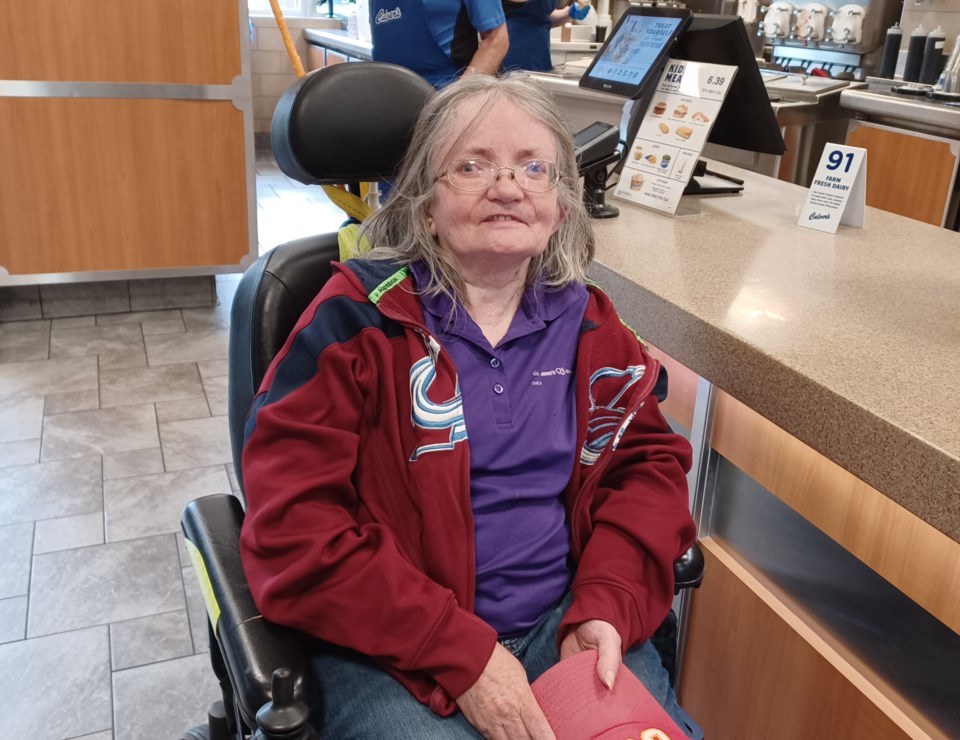A Longmont woman who uses a power wheelchair said she’s “livid” after her experience with the Regional Transportation District’s Access-a-Ride service.
Audrey Dunn, who is hearing impaired, said she’s had a lot of difficulty getting around with her wheelchair in the city.
“Traffic doesn't yield to you when using crosswalks, or with stop signs or stop lights,” she said. “I have had many close calls of becoming a hit-and-run victim. Many drivers are making illegal right hand turns from a left lane on Kline Drive, not to mention not giving the right of way in crosswalks at Hover and Bent Way.”
The first time Dunn applied for certification with RTD Access-a-Ride, her application was rejected, she said.
“They denied my request because they wanted me to use a fixed route bus,” Dunn explained.
She appealed RTD’s decision and won, but now she’s come up against another hurdle — the recertification process. The agency told her she needed documents from her doctor, and an RTD representative said they would contact her medical provider, Dunn explained.
“She was supposed to have called me back, she never did,” Dunn said. “I called her many times to touch base with her and had to leave a message each and every time. I called Access-a-Ride to make a reservation for an appointment and could not. I was livid. I did everything right to get recertified.”
The shared-ride paratransit service helps those who have disabilities and can’t travel on the regular buses and trains. In order to qualify for Access-a-Ride, a rider must be “unable to get to and from a bus stop or on and off a lift-equipped fixed-route bus” by themselves, or have a disability that prohibits them from completing a fixed-route bus independently, according to the RTD website.
There are three categories of Access-a-Ride eligibility: unrestricted, which includes no conditions; temporary, which is for riders with disabilities that aren’t permanent — such as an injury; and conditional, which is for riders who face barriers with certain types of weather, nearby architecture, lighting or certain ailments.
Those who fall under the unrestricted or conditional categories must reapply every four years — a task that Dunn has found almost impossible, she said.
Tina Jaquez, an RTD spokesperson, said the agency will work with Dunn to recertify her.
“We apologize for the inconvenience this may have caused,” Jaquez said in a statement. “We seek to provide access and meet the needs of all our customers. The RTD Access-a-Ride team made attempts to reach the customer with the contact information on file but the information was incorrect. We would like very much an opportunity to assist her with her recertification but would need current phone and email information to do so.”
Dunn said she’s tried other ride services, but found them unreliable, so her only option is to continue trying to get over the hurdles to be recertified with Access-a-Ride, she said.



